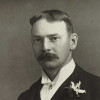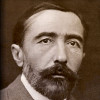“ The human mind has at no period accepted a moral chaos ”
George Eliot, Middlemarch (1872). copy citation
| Author | George Eliot |
|---|---|
| Source | Middlemarch |
| Topic | chaos mind |
| Date | 1872 |
| Language | English |
| Reference | |
| Note | |
| Weblink | http://www.gutenberg.org/files/145/145-h/145-h.htm |
Context
“Notwithstanding her jealousy of the Vincys and of Mary Garth, there remained as the nethermost sediment in her mental shallows a persuasion that her brother Peter Featherstone could never leave his chief property away from his blood-relations:—else, why had the Almighty carried off his two wives both childless, after he had gained so much by manganese and things, turning up when nobody expected it?—and why was there a Lowick parish church, and the Waules and Powderells all sitting in the same pew for generations, and the Featherstone pew next to them, if, the Sunday after her brother Peter’s death, everybody was to know that the property was gone out of the family? The human mind has at no period accepted a moral chaos; and so preposterous a result was not strictly conceivable. But we are frightened at much that is not strictly conceivable.
When Fred came in the old man eyed him with a peculiar twinkle, which the younger had often had reason to interpret as pride in the satisfactory details of his appearance.”
source



